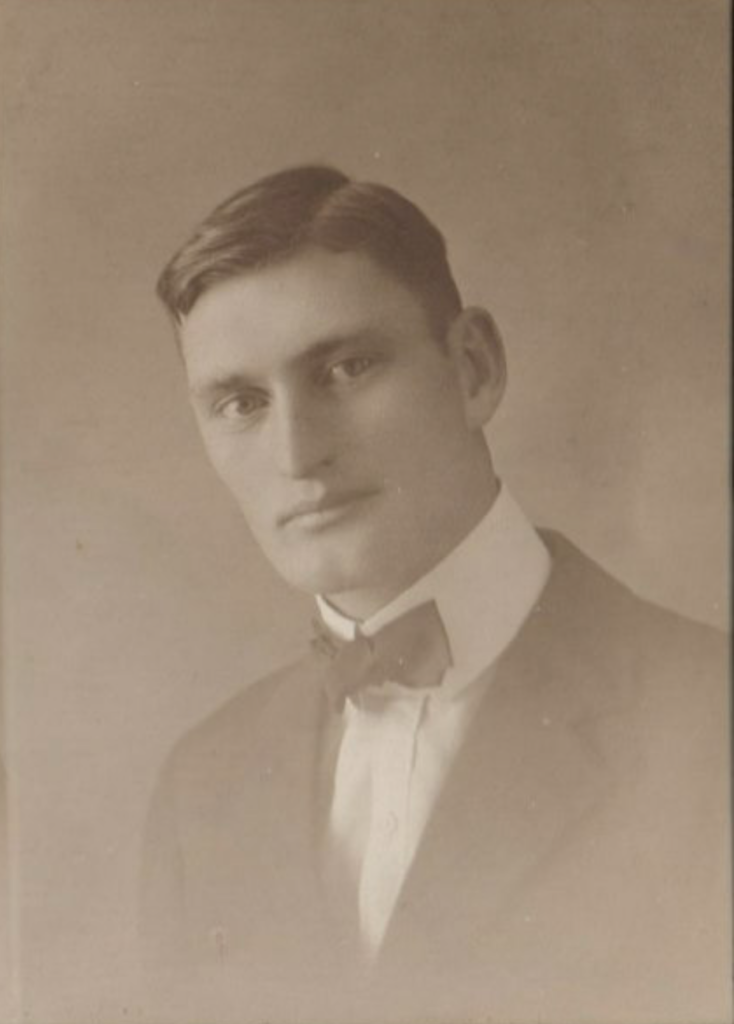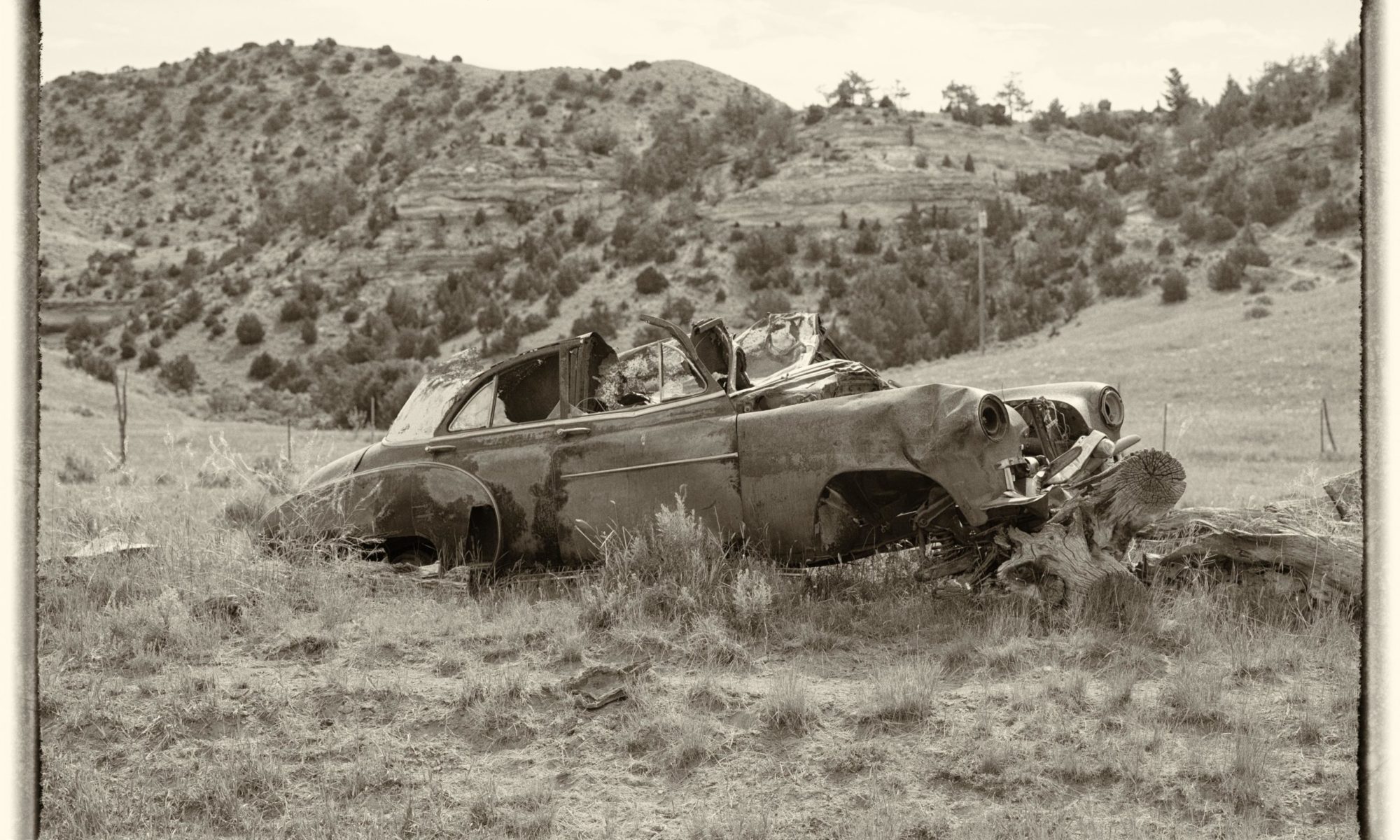Family history is not just a tree with tangled limbs of names, relationships, and dates. Though those facts are interesting and important, my favorite part is the stories, many of which are hard to come by. My granddad never disappointed when he spun his yarns. His stories sometimes seemed a bit farfetched, but they were true, and ripe with history of Western expansion and the rugged life of those early pioneers. Our family history does not belong solely to us but is laced with stories of other colorful characters who have their own tales to tell. In finding their stories, it somehow makes our family history even richer.

My handsome granddad
My granddad was a tall lean drink of water who wore a twinkle in his baby blues, laughter on his lips, and a square jaw, all topped off with a cowboy hat. His stories of life in the wilds of Montana were larger-than-life and many of the people included in his tales became legends. In those days, a neighbor could be within a hundred miles or more. Though neighbors weren’t necessarily close in distance, they would set aside their own work to help one another. As my granddad recalled those days, his memories reached into the recesses and gullies of the rugged Montana hills and found Joseph (Joe) Doney (Doaney), a neighbor we met in the previously story, “Doctor Bee.” Doney was in the cattle business at the mouth of Duvall Coulee, near the Missouri River.
Joseph Doney was no ordinary man. He was wise in the ways of the western frontier. His father, by the same name, was Chippewa, and his mother was of French descent. A newspaper article published in 1936 after his death gives the account of just a small portion of his life.
The journalist recorded an interview given by Doney that reached back to his childhood that was spent in the vicinity of Totten, North Dakota, “except when on long treks to get buffalo and beaver,” which could be for 10 to 12 months at a time. The story continued and told of his time as a young man when he freighted and was employed as an Army Scout from 1863-1870 with a company of soldiers out of Totten. He rode Pony Express through hostile Indian country but in snowy months, he made his mail deliveries by dog team. When I read his tales about driving the dog team through deadly blizzards that blew across the Dakota Territory prairies, it sent chills to the bone. On one of his excursions several soldiers who traveled with him and his partner froze to death.
Here are a few excerpts from experiences within his ninety years: “The coming of the first steamboat in the spring was an interesting sight. The coming of any steamboat, for that matter, always sent a thrill through me. I became acquainted with many of the steamboat Captains and pilots. The tenderfeet coming from the east amused me as much as I, with my buckskin garb, did them.” Doney told of standing on the banks of the Missouri River waving and calling out, “bon voyage,” when the boats headed north. In his mind, he imaged them loaded with merchandise as the boat made its way to Ft. Benton, just as they had done in the older days.
Joe Doney saw many changes in his years. The journalist who wrote his account sums it up pretty well, “Whistling locomotives had taken the place of popping bull whips, cattle had replaced the buffalo. Towns sprang up, stores and merchandise were sold for cash instead of bartered for furs. It came so quickly he was made a foreigner in his own country. He was bewildered, he knew not how to make a living. He wanted to get away from it all, but there was no place to go. Yes, there was: The Missouri River, where many just like Joe had found seclusion to enjoy life as he had known it away from the whistling locomotives, the sound of saws and hammers with rushing foreign people in their race for gold. This is where he went, located in a wide blue joint bottom which he was engaged in the only occupation he was fitted for; the raising of cattle. Where he lived, seldom leaving the river.”
Joseph Doney was a man whose story bridged the gap of history. A few tattered pieces of the unfinished puzzle of his story are laid out on the table of life. Most of the pieces have been lost, scattered across the windswept prairies, buried in the deep winter snows, or floating on the rivers and creeks that wind through the Dakotas and Montana wilderness.
My grandfather always spoke of the Missouri River Breaks with respect and admiration. The wild country was hard but rewarding. I am so thankful that Joe Doney, a half-breed, and his wife were counted among the friends of my grandfather. Somehow, it makes my heart sing a song of respect for those western pioneers who braved the harsh country, lived off the land, and went above and beyond to help their neighbor.
Sources:
Doctor Bee, as told by my grandfather
Census records : 1850, 1900, 1920, 1930
Military record as found at FOLD
Newspaper article: Great Falls Tribune, July 5, 1936, p 30, 31
Various family tree sites and entries
Family Search
Ancestry
BLM (Bureau of Land Management) Montana search of documents
